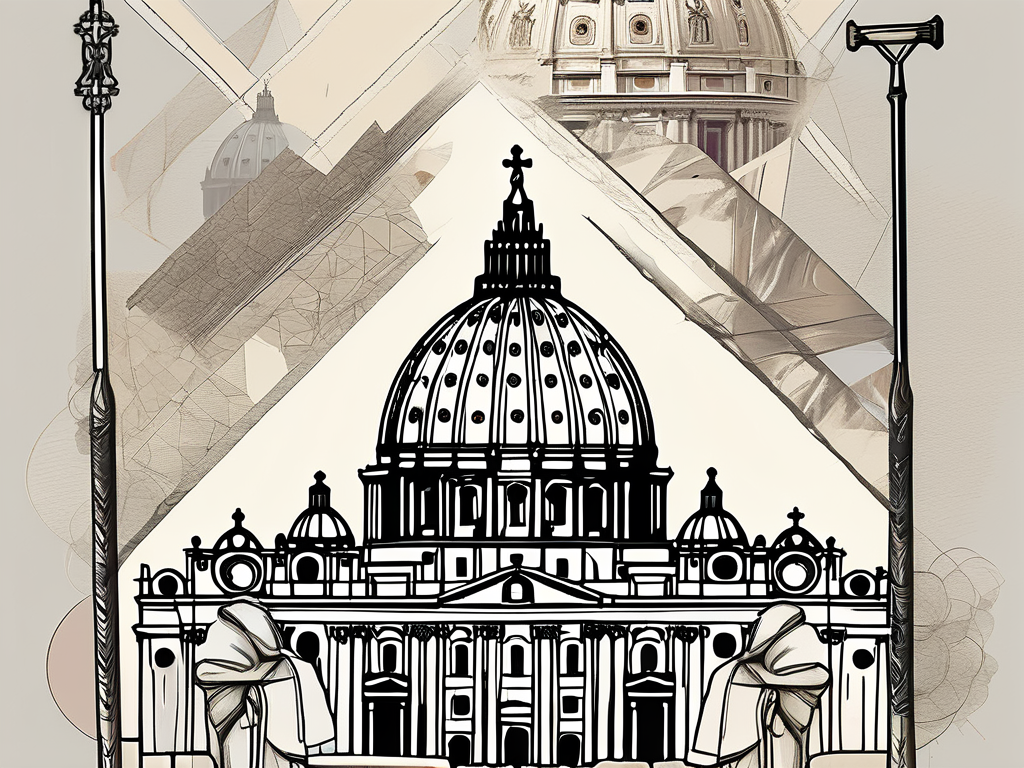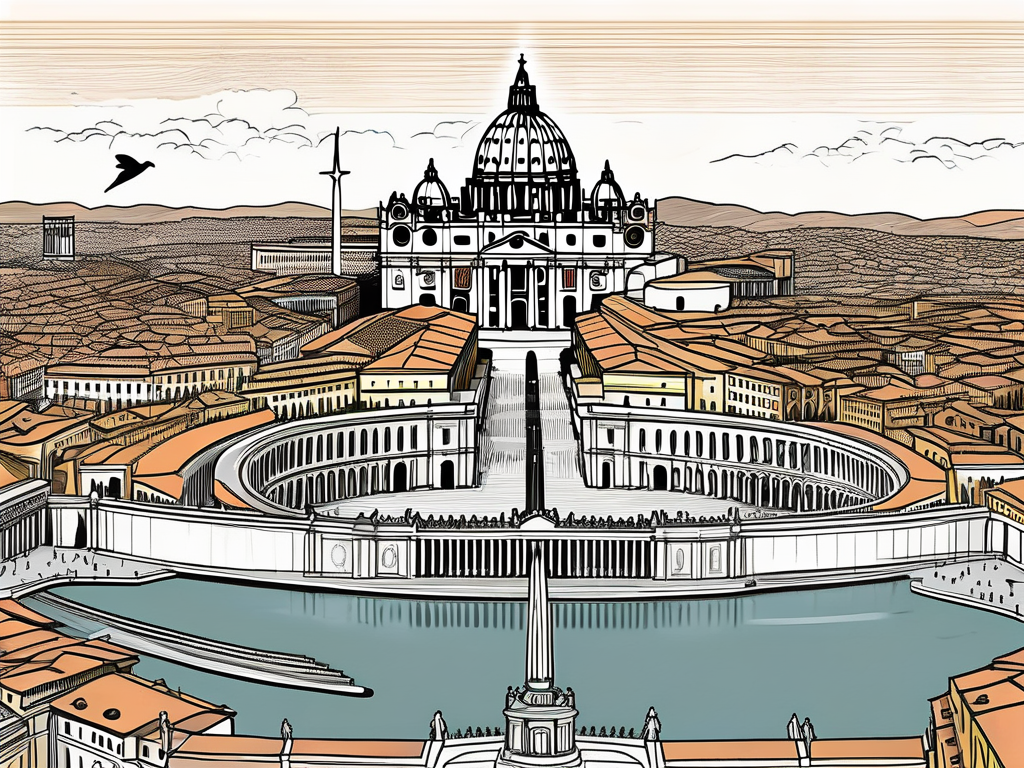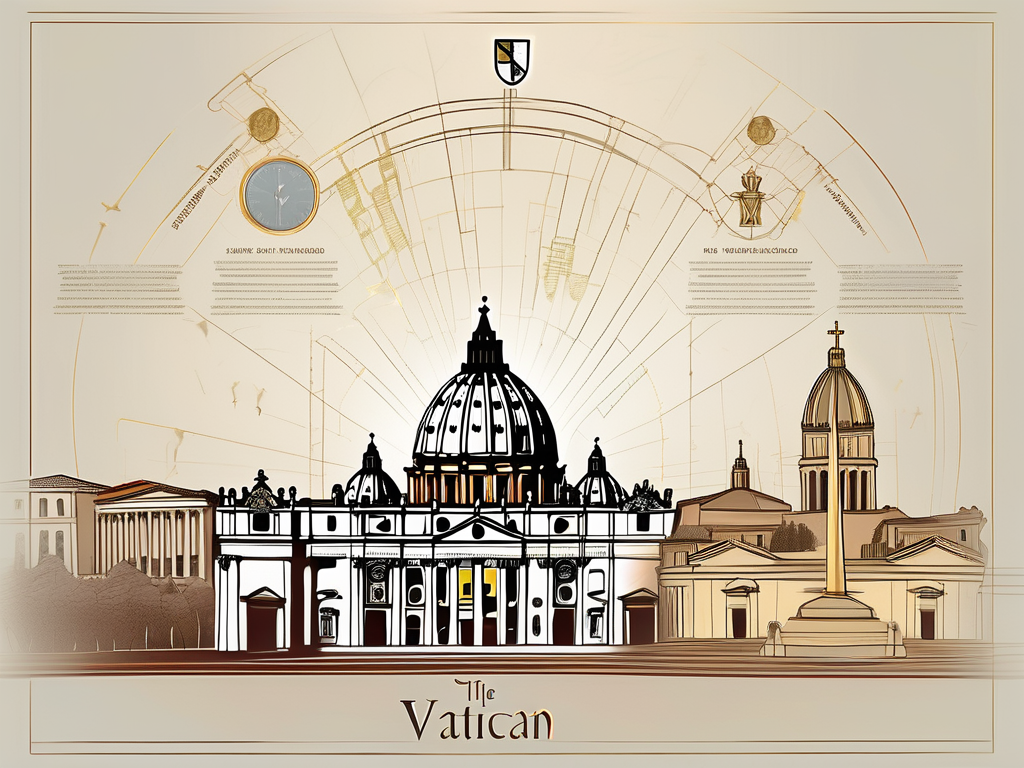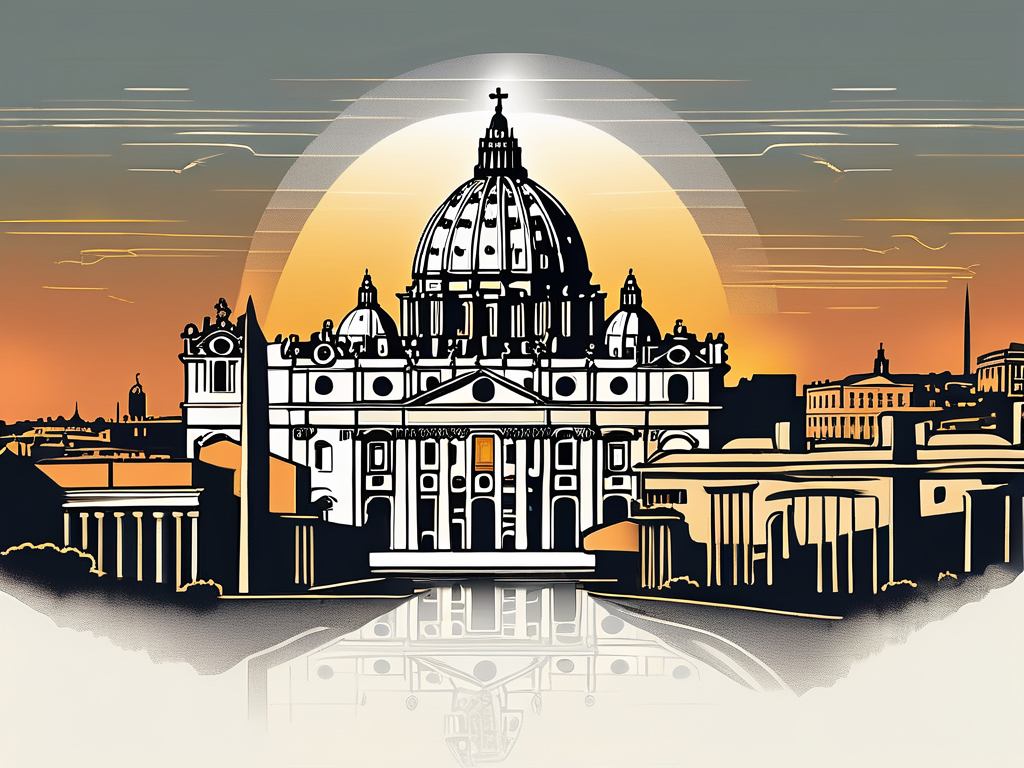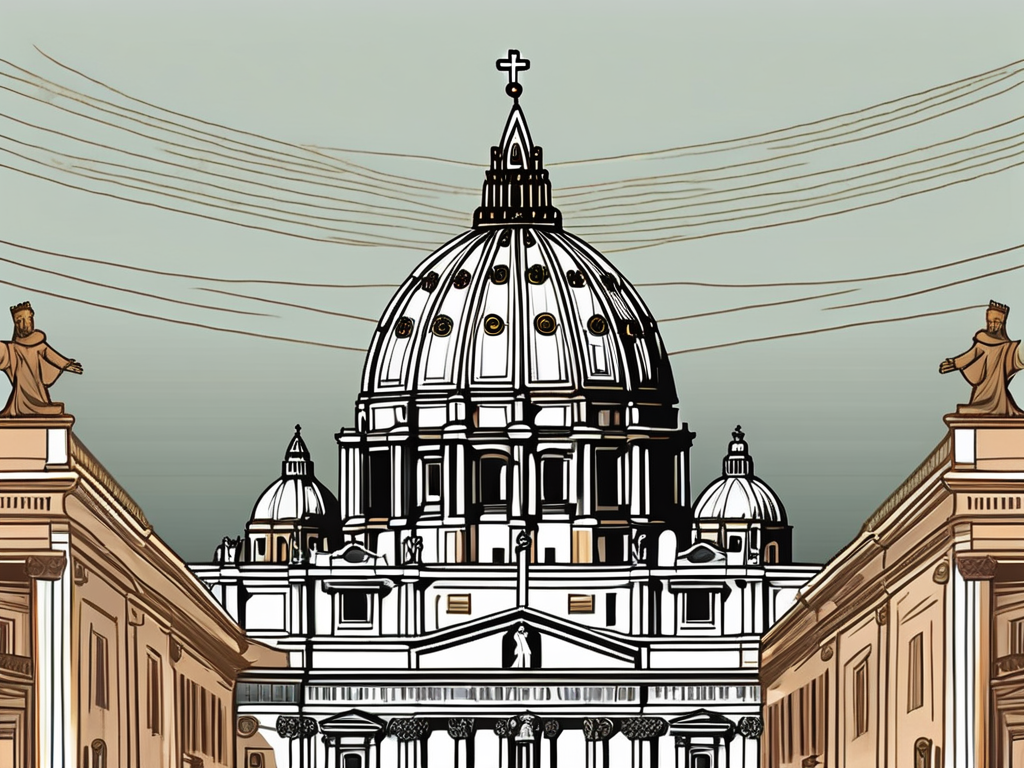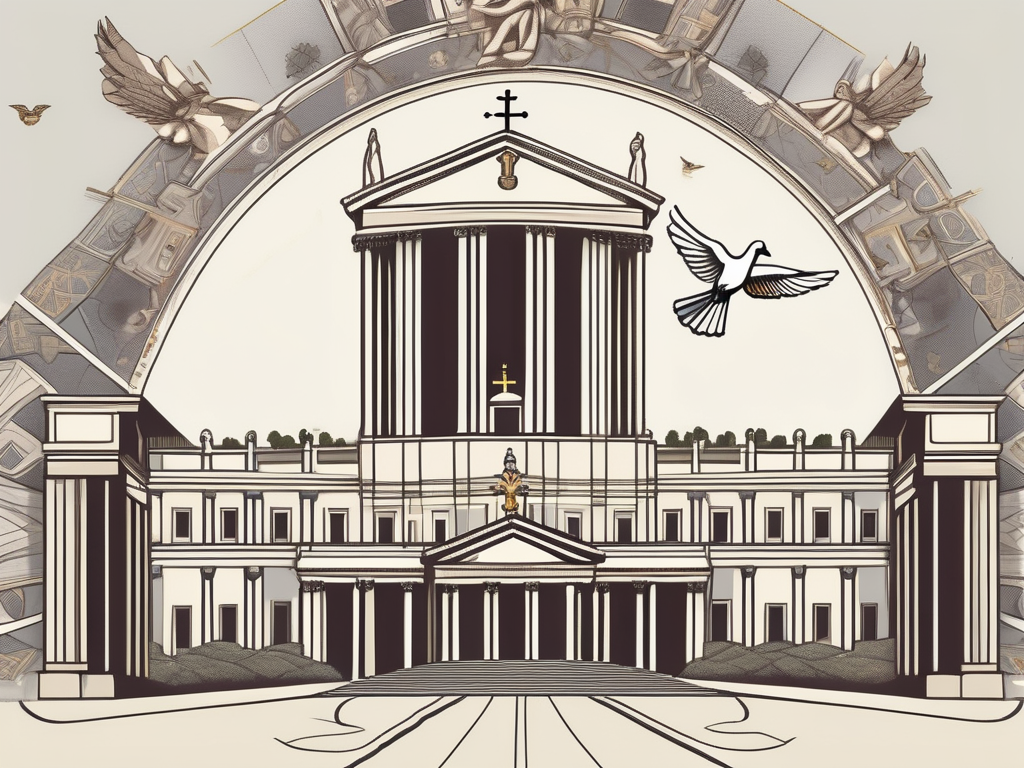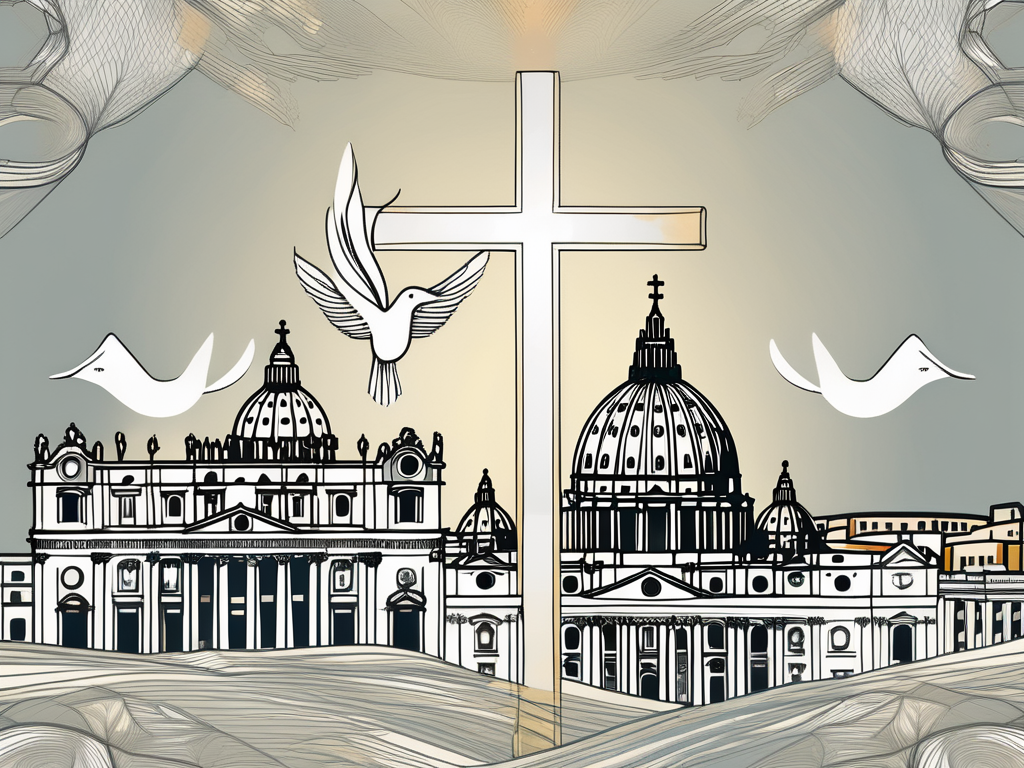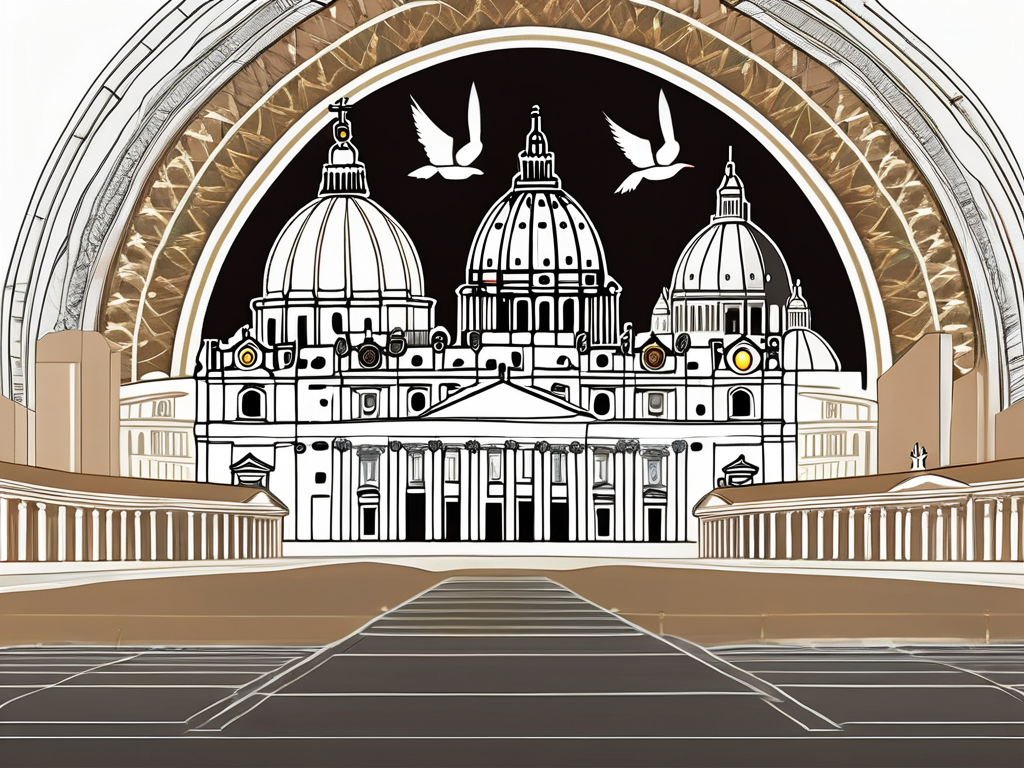Pope Anacletus is a figure in the history of the Catholic Church who left behind a lasting legacy. His life was one of great significance, and his contributions to the Church continue to be celebrated and studied to this day. In this article, we will delve into the early life of Pope Anacletus, his ascension to the papacy, his significant contributions to the Church, the controversies and criticisms he faced, and finally, his lasting legacy.
Early Life of Pope Anacletus
Birth and Family Background
Little is known about the exact details of Pope Anacletus’ birth and family background. Historians believe he was born in the first century AD, during a time of great turmoil and political unrest. His family background remains a mystery, but it is believed that he came from humble beginnings.
During this period, the Roman Empire was at its peak, with emperors like Nero and Domitian ruling with an iron fist. The Jewish-Roman wars were raging, and the early Christian community faced persecution and oppression. It was in this tumultuous environment that Pope Anacletus was born, a time when the world was yearning for spiritual guidance and stability.
Although the details of his birth are shrouded in mystery, it is believed that Pope Anacletus’ family belonged to the lower classes of society. They were likely ordinary people, struggling to make ends meet in a world dominated by the rich and powerful. The hardships and challenges of his early life would later shape his character and influence his papacy.
Education and Early Influences
Despite the lack of information about his early life, it is widely believed that Pope Anacletus received a solid education. In a time when education was a privilege reserved for the elite, it is remarkable that he had the opportunity to acquire knowledge and intellectual skills.
During his formative years, Pope Anacletus would have been exposed to a variety of influences that shaped his worldview and prepared him for his future role as the head of the Catholic Church. Some scholars suggest that he was mentored by important figures within the Church, who recognized his potential and nurtured his talents.
Others argue that his rise to power was largely based on his own merit and charisma. They believe that Pope Anacletus possessed innate qualities of leadership and a deep understanding of the needs and aspirations of the early Christian community. His ability to connect with people from all walks of life and inspire them with his words and actions set him apart from his contemporaries.
As he grew older, Pope Anacletus would have witnessed the struggles and persecution faced by the early Christians. This firsthand experience would have fueled his passion for justice and his unwavering commitment to the teachings of Christ. It is through these experiences that he developed a deep sense of empathy and compassion, which would become the guiding principles of his papacy.
In conclusion, while the early life of Pope Anacletus remains largely shrouded in mystery, it is clear that he emerged from humble beginnings to become a prominent figure in the history of the Catholic Church. His experiences during a time of political unrest and his education in a society where knowledge was a privilege shaped his character and prepared him for the challenges that lay ahead. Pope Anacletus’ rise to power was a testament to his own abilities and the impact he had on those around him.
Ascension to Papacy
Election and Early Days
Upon the death of his predecessor, Pope Anacletus was elected to the papacy. His election came at a time of great uncertainty and division within the Catholic Church. The conclave, consisting of cardinals from all over the world, gathered in the Sistine Chapel to deliberate and choose the next leader of the Church. After days of intense prayer, reflection, and debate, the white smoke emerged from the chimney, signaling that a new pope had been elected.
Pope Anacletus, a man of deep faith and wisdom, stepped out onto the balcony of St. Peter’s Basilica to greet the thousands of faithful gathered below. The crowd erupted in cheers and applause, welcoming their new spiritual leader with open arms. With humility and grace, Pope Anacletus addressed the crowd, expressing his gratitude for their support and promising to lead the Church with integrity and compassion.
His early days as pope were marked by a commitment to unity and reform. Recognizing the need to heal the divisions within the Church, Pope Anacletus embarked on a mission to foster dialogue and understanding among the different factions. He convened meetings with bishops, theologians, and scholars from various theological backgrounds, encouraging open and respectful discussions on matters of doctrine and practice.
Challenges and Triumphs
During his papacy, Pope Anacletus faced numerous challenges, both from within and outside the Church. The world was undergoing significant social and political changes, and the Catholic Church was not immune to these shifts. Pope Anacletus found himself at the center of debates and controversies, as he navigated the delicate balance between tradition and progress.
He was known for his firm stance on important theological matters and his unwavering commitment to upholding the principles of the Catholic faith. Pope Anacletus tirelessly defended the teachings of the Church, engaging in theological debates and writing encyclicals that clarified and reaffirmed Catholic doctrine. His intellectual prowess and eloquence won him respect and admiration from both within and outside the Church.
Despite facing opposition and criticism, Pope Anacletus remained steadfast in his mission to lead the Church. He implemented reforms aimed at addressing corruption and promoting transparency within the Vatican. He established new protocols for financial accountability and strengthened the Church’s commitment to social justice and charitable works.
Under his leadership, the Church experienced a renewed sense of purpose and unity. Pope Anacletus’s efforts to bridge the gap between different factions within the Church bore fruit, as bishops and theologians found common ground and worked together towards a shared vision. The faithful, inspired by his humility and dedication, rallied behind him, contributing to a resurgence of Catholicism around the world.
Throughout his papacy, Pope Anacletus remained a beacon of hope and inspiration for millions of Catholics. His unwavering faith, intellectual acumen, and compassionate leadership left an indelible mark on the Church and its followers. As his pontificate continued, the world watched with anticipation to see what new heights Pope Anacletus would lead the Catholic Church to.
Significant Contributions to the Church
Reforms and Policies
Pope Anacletus is widely recognized for his reforms and policies that brought about positive change within the Catholic Church. He was a strong advocate for social justice and worked tirelessly to address issues of inequality and poverty. His reforms aimed to create a more inclusive and compassionate Church, one that would better serve its followers.
Under Pope Anacletus’ leadership, the Church implemented various policies to promote social equality. He established programs to provide food, shelter, and education to the less fortunate, ensuring that the Church played an active role in alleviating poverty. Additionally, he encouraged the clergy to actively engage with their communities, fostering a sense of unity and support among the faithful.
Furthermore, Pope Anacletus recognized the importance of empowering women within the Church. He implemented policies that allowed women to take on more prominent roles, such as leading congregations and participating in decision-making processes. This progressive stance not only promoted gender equality but also enriched the Church by harnessing the diverse talents and perspectives of its female members.
Architectural and Artistic Contributions
In addition to his theological and administrative contributions, Pope Anacletus also left a significant mark on the Church in the realm of art and architecture. He commissioned the construction of several important religious buildings, which still stand today as a testament to his vision and the artistic beauty of the time.
One of his most notable architectural contributions was the construction of the magnificent St. Anacletus Cathedral. This grand structure, with its soaring spires and intricate stained glass windows, became a symbol of the Church’s commitment to spiritual transcendence and divine worship. The cathedral’s design incorporated elements from various architectural styles, showcasing Pope Anacletus’ appreciation for the diverse cultural influences that shaped the Church.
Pope Anacletus also fostered the development of religious art during his papacy. He patronized renowned artists, commissioning them to create masterpieces that adorned the walls of churches and cathedrals. These artworks depicted biblical stories and religious figures, inspiring worshipers and deepening their spiritual connection to the Church.
Moreover, Pope Anacletus encouraged the use of music in religious ceremonies, recognizing its power to elevate the soul and enhance the worship experience. He established choirs and supported the composition of hymns and sacred music, enriching the liturgical traditions of the Church.
In conclusion, Pope Anacletus made significant contributions to the Catholic Church through his reforms, policies, and his support for art and architecture. His progressive stance on social justice and gender equality paved the way for a more inclusive and compassionate Church. Additionally, his architectural and artistic contributions continue to inspire awe and reverence, reminding us of the enduring legacy of his papacy.
Controversies and Criticisms
Disputes and Conflicts
Like many prominent figures throughout history, Pope Anacletus faced his fair share of disputes and conflicts. He had to navigate delicate political situations and respond to internal divisions within the Church. His leadership style and decisions often sparked passionate debate among his followers.
Response to Criticisms
Pope Anacletus was known for his wisdom and ability to address criticisms with grace and humility. He recognized the importance of open dialogue and sought to engage in constructive conversations with those who disagreed with him. His response to criticism was marked by a willingness to listen and learn, while also standing firm in his convictions.
Pope Anacletus’ Legacy
Impact on the Catholic Church
Pope Anacletus’ influence on the Catholic Church cannot be overstated. His leadership and reforms set the stage for future popes and shaped the trajectory of the Church. His commitment to social justice and inclusivity left a lasting impact, inspiring future generations of Catholics to carry on his work and continue the mission of the Church.
Influence on Successive Popes
Pope Anacletus’ legacy extended beyond his own time. His teachings and example served as a guiding light for future popes, who would draw inspiration from his wisdom and leadership. Many of the reforms initiated by Pope Anacletus were built upon by his successors, further solidifying his place in history as a transformative figure within the Catholic Church.
As we reflect on the life and legacy of Pope Anacletus, we are reminded of the profound impact one individual can have on the course of history. His commitment to justice, his unwavering faith, and his dedication to the betterment of the Church continue to inspire and guide us today. Pope Anacletus may be gone, but his legacy lives on in the hearts and minds of Catholics around the world.
